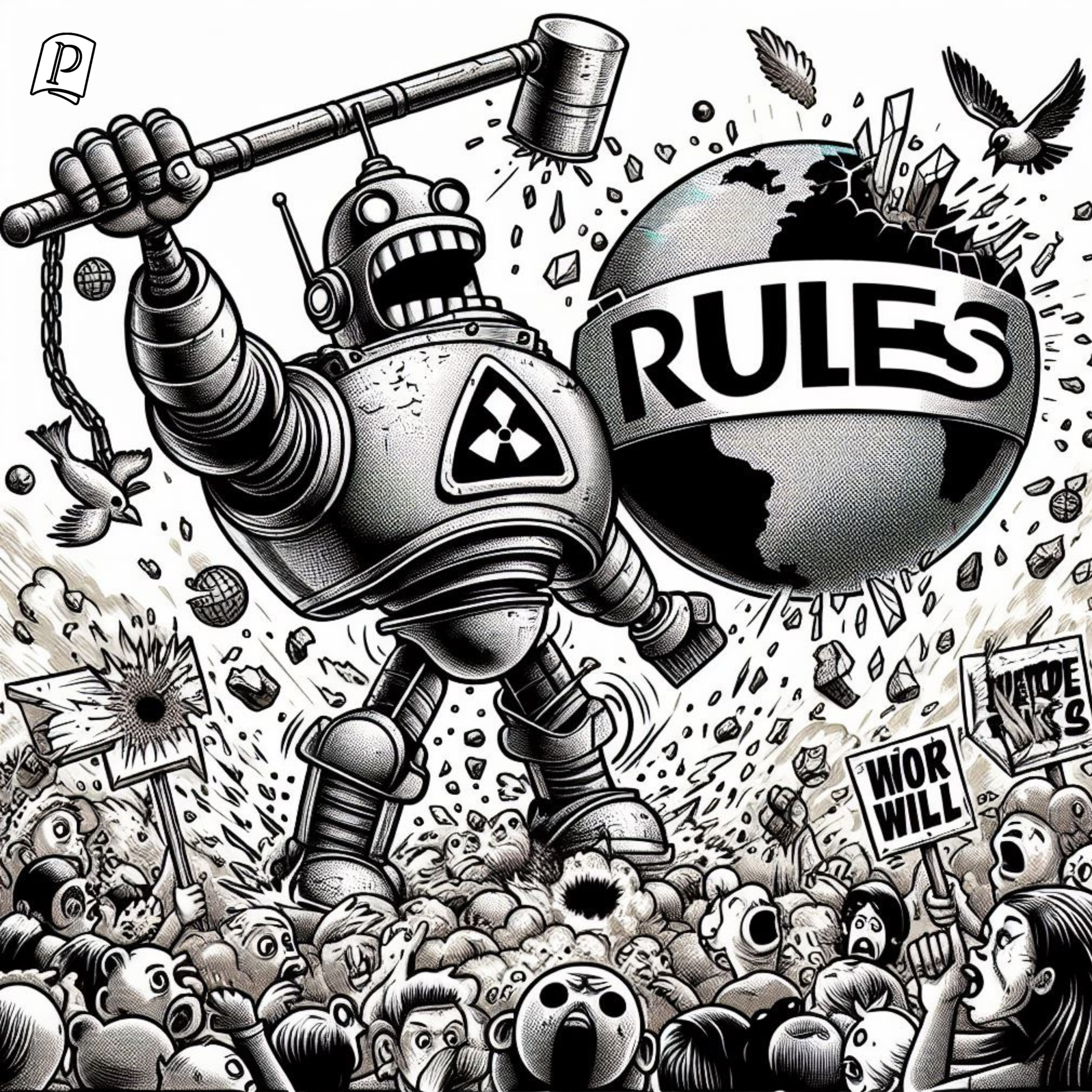For decades after World War II, the “rules-based international order” was held up as the ideal system to ensure global peace, prosperity and adherence to universal human rights and international law. Led by the United States and its democratic allies, this system was rooted in the principles of political liberalism, economic liberalism and liberal internationalism. The intention was noble – to create an interconnected world governed by rules rather than the capricious whims of power politics.
Yet as the devastating events continue to unfold in Gaza, we are faced with an inescapable reality: The rules-based order is a fallacy that has lost all credibility. Recent history has laid bare its hypocrisies and moral bankruptcy. The very countries that established and professed fealty to this order have repeatedly violated its core principles with impunity when it suited their interests.
Israel’s military tactics in Gaza represent an egregious violation of the laws of war and basic human rights. Depriving civilians of electricity, water, food, and medical care while targeting residential areas, hospitals, places of worship and schools is incompatible with the Geneva Conventions. Yet Israel continues this campaign of collective punishment undeterred, enabled by the United States’ veto power at the UN Security Council and unyielding military and political support.
We have been told these systemic abuses against the Palestinian people are permissible in the name of Israel’s security. But this perverse logic exposes the truth – that human rights are applied selectively based on ethnicity, religion and geography. This is the opposite of the universality that was promised. Human rights, it seems, have an insidious racial hierarchy.
This double standard was foreshadowed by the West’s illegal invasion of Iraq under manufactured pretenses of weapons of mass destruction – an act that significantly eroded the credibility of the international order. The hypocrisy was solidified as Western powers fueled civil wars in Libya and Syria in the name of human rights, only to inflict devastating harm on civilians in the name of countering terrorism.
Today, we find ourselves in a “might makes right” reality that should terrify all who believe in a just rules-based system. The world’s most powerful nations commit war crimes and violate international laws with full confidence that there will be no consequences. As Israeli government adviser Michael Ledeen quipped, “Every ten years or so, the United States needs to pick up some small crappy little country and throw it against the wall, just to show the world we mean business.” This impulse reflects a chilling lack of accountability and respect for human life.
Some may argue that Western powers are simply acting in their self-interest, as all states do, and that a truly “rules-based” order was always an unrealistic utopian ideal. Perhaps the promoters of this order never intended to adhere to it themselves, instead using it as a cynical tool of influence to subjugate others to their will.
The events in Gaza have laid bare this ruse for all to see. Those who believed in the image of inherent Western benevolence and moral leadership sold through speeches, books and media have felt a deep sense of betrayal. The grand promises of universal human rights now ring hollow, exposed as mere pretexts for domination when convenient.
As a result, Gen Z activists around the world are rejecting the old hierarchical world order and insisting on accountability. Using the collective power of social media, they are combating the denial, historical revisionism and dehumanizing propaganda that so often precipitate and accompany genocidal atrocities. They understand that language is a weapon that is used to control historical narratives and manufacture consent.
The people of Gaza and Palestine represent a profound moral litmus test for the world. Will we stand by idly as human rights and the rule of law are discarded in the name of power? Or will we have the moral courage to resist injustice, even when committed by the most powerful forces on Earth?
The events unfolding in Gaza should alarm anyone who cares about human rights and a rules-based global order. But perhaps more distressing is the realization that the rules-based order was an illusion all along – a brilliant public relations exercise by Western nations to repackage naked imperialism as a noble system of universal values.
If the idea of a rules-based international order is to survive into the 21st century, far more foundational changes are needed beyond superficial rhetoric. Fundamental power imbalances that privilege Western supremacy and manifest in impunity for allies like Israel must be dismantled. All nations must be held to the same standards of accountability for human rights and international law.
Most importantly, we must accept the tragic reality that words like human rights and exceptionalism have become devoid of meaning through misuse. Unless they are embodied through consistent moral action, they are empty platitudes.
Some may contend that no truly equitable and just world order has ever existed in the flawed arena of nation-states and power politics. But dismissing such aspirations as naive only perpetuates the perverse status quo. The path forward requires us to return to first principles – recommitting ourselves to the equal dignity and human rights of all people as envisioned by the Geneva Conventions and UN charter.
As Frantz Fanon reminded us, “Everything can be explained to the people, on the single condition that you want them to understand.” If humanity’s collective moral imagination can be liberated from the self-imposed shackles of the bankrupt rules-based order, perhaps we can construct a new global social compact. One premised not on cynicism and domination, but true solidarity, mutual understanding and the unleashed potential of our interconnected world.











